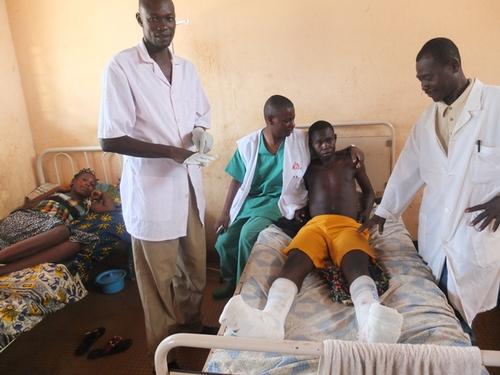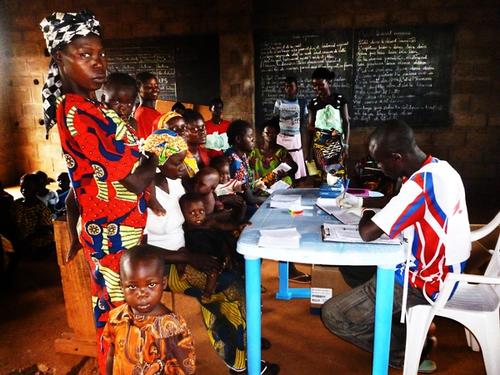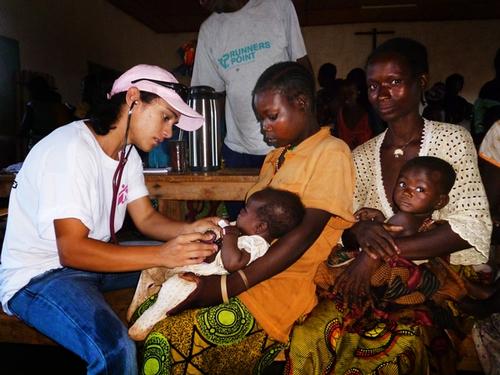Bangui, 10 April 2013 —Uncontrolled armed groups in the Central African Republic are spreading chaos leaving the civil population without the humanitarian attention they urgently need. Médecins Sans Frontières (MSF) facilities have been looted and the teams have suffered many robberies and threats since the conflict started. The new Séléka government should assume their responsibility and reestablish control over armed groups operating in a number of locations across the country.
MSF medical teams have been evacuated from the towns of Batangafo and Kabo due to robberies and general insecurity, and all hospital and medical activities have been suspended. As MSF is the only humanitarian organization providing medical Central African Republice, this means that a population of more than 130,000 will be unattended in the coming days or weeks. MSF has suffered similar incidents in Boguila, where international staff was evacuated. The hospital is still operational with a skeleton team. Due to the insecurity, MSF is also unable to access areas where we know there are medical needs, such as Bossangoa where the hospital has been looted and Ministry of Health staff has fled in fear.
In Bangui, after 24 March, when Séléka authorities took control of Central African Republic, MSF facilities were looted on a number of occasions resulting in significant losses including equipment, drugs, cash, and vehicles. Since the start of the Séléka offensive, armed theft has resulted in substantial economic losses for MSF. But importantly, have resulted in the blockage of humanitarian and medical activities for the population in need.
“MSF remains extremely concerned for the well-being and health of the population”, says Sylvain Groulx, MSF Head of Mission in Bangui. “We have to keep in mind that in the best of peaceful times, they go through daily hardships to survive. Even before the recent events, the mortality rates related to preventable and treatable diseases (mainly malaria) were already above the emergency threshold in many areas of the country. Now, the ongoing insecurity is exasperating their already fragile coping mechanisms”.
We have to keep in mind that in the best of peaceful times, they go through daily hardships to survive.Sylvain Groulx
MSF teams in the capital Bangui area still providing medical support at one hospital, Hôpital Communautaire . Although the situation in the capital has stabilized, recent confrontations and shootings in some areas mean there are still injured patients who require Central African Republice. Other additional difficulties are the lack of water and electricity and qualified medical staff.
MSF calls on the Séléka government to better control armed individuals and their own forces in the areas affected in order to cease threats and armed attacks to humanitarian and medical workers and structures so that the population can receive humanitarian assistance. MSF fears that if this is not Central African Republicried out their will be dramatic consequences to the population.
MSF has been working in the Central African Republic since 1997 and operates seven programs in five of the country’s seven health districts. In collaboration with the Ministry of Health, MSF supports seven hospitals and about 38 health posts, and activities range from basic healthCentral African Republice, to HIV and TB Central African Republice, neglected diseases, nutrition programs, vaccination, surgery and other specialist healthCentral African Republice. Malaria is often the main focus of MSF’s programs.






